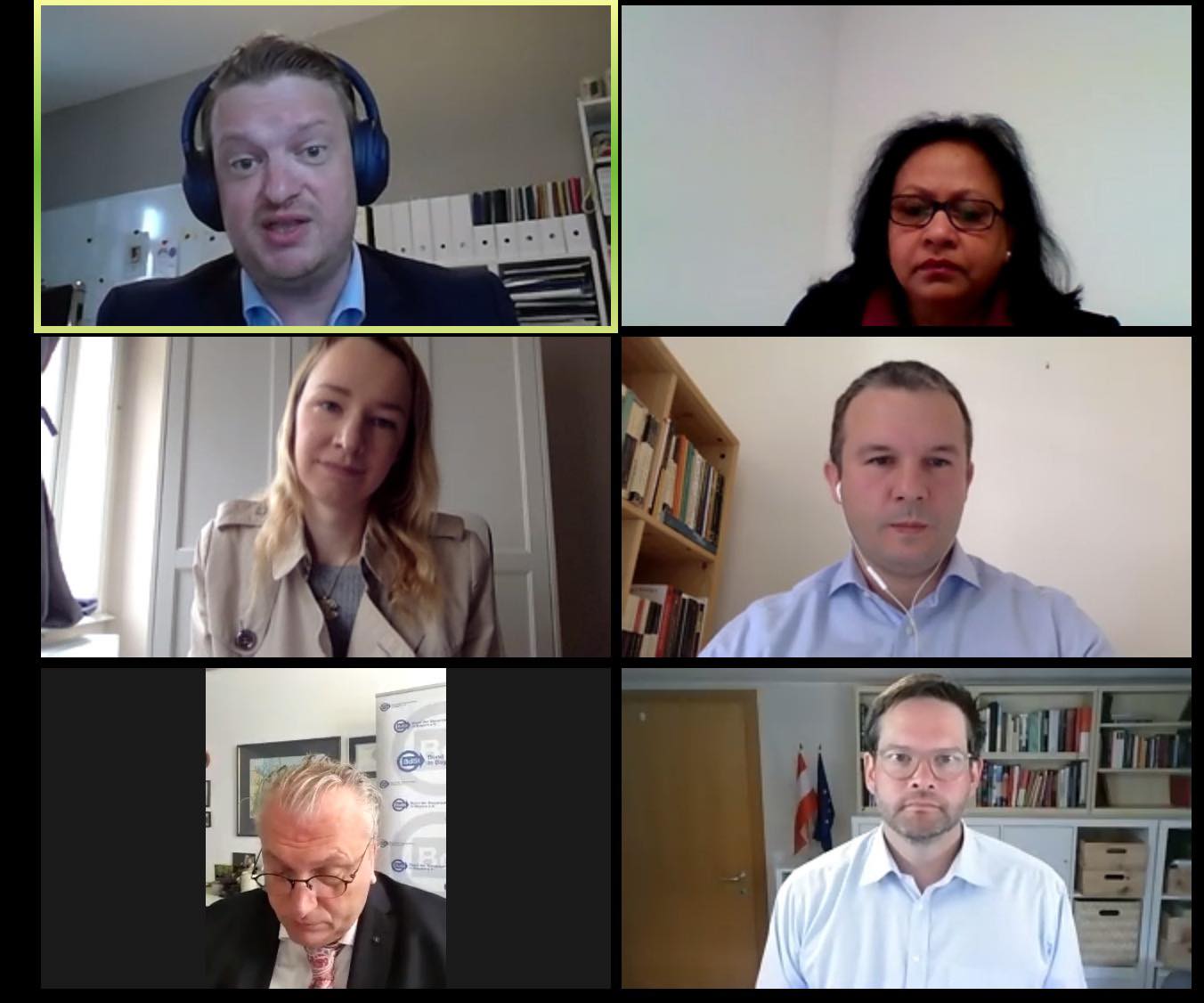The Covid-19 Economic Response to the Self-Employed: What Has Already Been Done & What Remains To Be Done?

💬 On April 29th, 2020, SME Connect in cooperation with SME Europe organised the event on “The Covid-19 Economic Response to the Self-Employed: What Has Already Been Done & What Remains To Be Done?” in order to evaluate and contain the impact of Covid-19 on the self-employed, hosted by Lukas Mandl MEP, Member of LIBE, AFET & EMPL Committees as well as Vice-President of SME Connect, Ionut Lacusta, Head of Public Policy EEMEA and EU Affairs, Glovo; Srita Heide, Special SME Europe Representative for Diversity, CEO Srita Heide Int.; Kamile Kaselyte, Marketer & Strategist, Founder of KK Consulting Services and Michael Jäger, Secretary General, Taxpayer Association of Europe were the expert representative of self-employed SMEs who shared their experiences to examine suitable visions for the future of the self-employed.
Facing a painful economic maelstrom, #EU leaders are being urged to deliver a robust co-ordinated #economic and #political response to shield companies and households from the impact of the #coronavirus #outbreak. The EU’s 200bn Euro #recovery plan supports a number of first-aid #instruments as #loans and #credit guarantees, income #subsidies, #tax deferrals and #debt repayment holidays, deployed by the Member States to #help the variety of industries. However, since the response to the #crisis have lacked the pan-European #synchronization, in some Member States, the #selfemployed do not have easy access to #national #support #funds, which further increases the #risk of local economies downfall and jeopardizes the economic wellbeing of the European Union as a whole. In total, #freelancers and #independentprofessionals make up 30.6 million of the EU #workforce and 14% of total #employment. This webinar will focus on results and still needed #interventions to support #Covid19 self-employment #relief schemes.
Lukas Mandl MEP welcomed the participants with an opening speech about the importance of SMEs as they are the backbone of the economy. Therefore, it is key to ensure less bureaucracy and more flexibility for SMEs to survive the COVID-19 pandemic.
The governmental health measures related o the pandemic, has been rapidly becoming an economic concern, stated Ionut Lacusta. SMEs are most resilient to relaunch after the crisis. Thus, brings the urgent need for more flexibility, supplemented income, tax reliefs or other governmental support during the uncertainty. He sees a shift from dining food to groceries which effects SMEs differently. For example, the operating costs of restaurants could be higher by shifting to delivery or take-away services during the lockdown than by completely freezing the operations.
Srita Heide highlighted the diverse business concepts of self-employment and the importance of creative solutions for the future. Moreover, she stated the need for a harmonized definition of self-employment in all Member States of the European Union. Special emphasise was put on the collaboration between self-employed & SMEs within the EU and a possible governmental social insurance.
Kamile Kaselyte emphasised that it is time now to rethink the business model and to define new strategies. The first aid measures of financial support are mostly not proportional to the income of the previous year. The COVID-19 pandemic has reshaped the image of self-employment. More and more SMEs are realising the potential of online selling by reshaping the business model using PR & Marketing strategies.
In the intervention speech, Michael Jäger pointed out that in the economy market everyone is first responsible for him-/herself. He appealed to the common sense to only apply for financial support when in fact the company has been closed through governmental measures. Moreover, he stated that the taxation might be too high, if one does not have the ability for any financial reserves. Tax cuts and tax refunds together with better transparency tools are urgently needed.